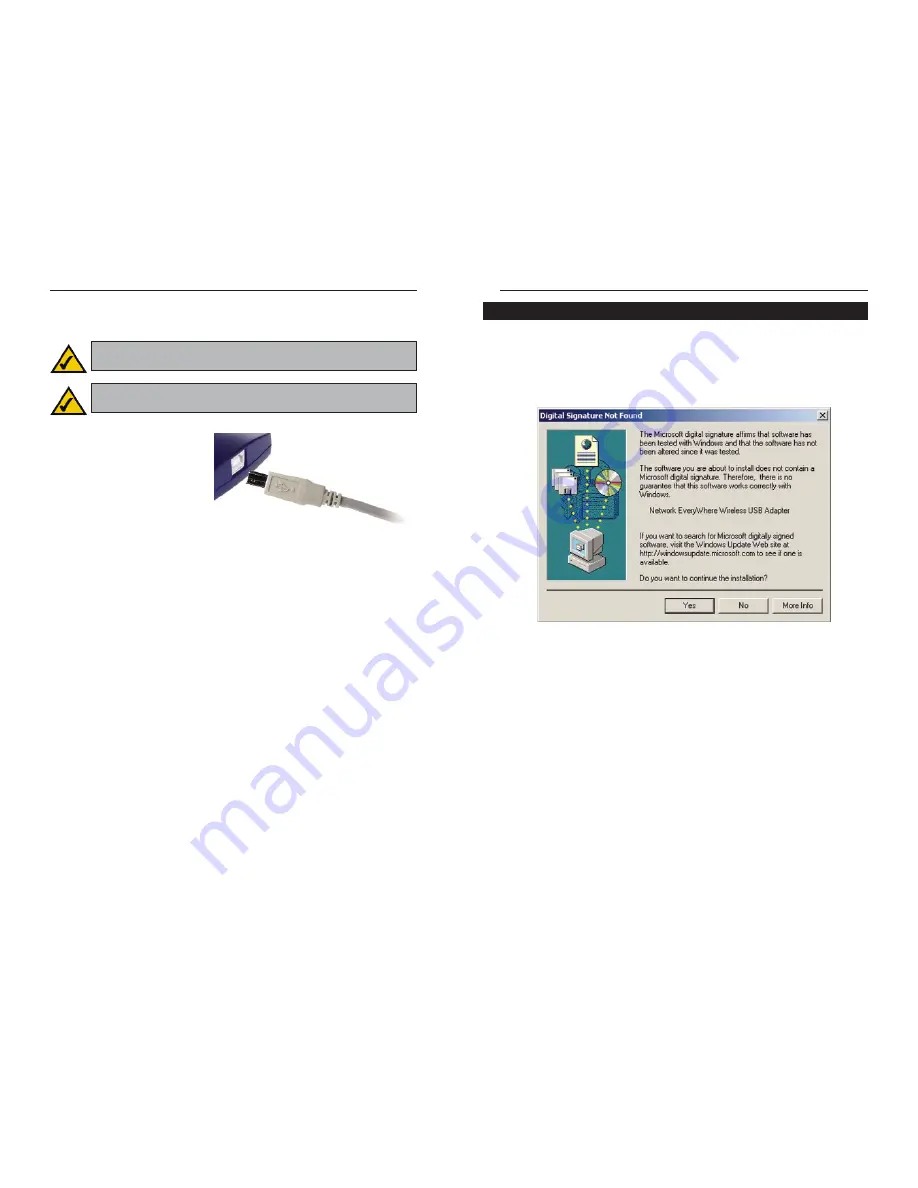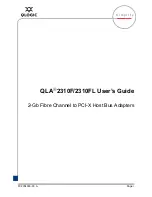
Wireless USB Adapter
13
Network Everywhere
®
12
After the Adapter has been physically connected to your computer, Windows
will detect the new hardware. For Windows 2000, you may be informed that a
digital signature has not been found (see Figure 6-2). This is normal, and it has
been verified that the Adapter does work with Windows 2000. Click the Yes
button to continue.
Windows will begin installing the driver files. If Windows asks you for the
original Windows CD-ROM, insert the CD-ROM, and direct Windows to the
proper location for the CD-ROM (e.g., D:\).
Congratulations! The installation of the Wireless USB Adapter is com-
plete. If you want to check the link information, search for
available wireless networks, or make additional configuration changes,
proceed to “Chapter 8: Using the WLAN Monitor for Windows 98SE,
Me, and 2000.”
Figure 6-2
Hardware Detection for Windows 98SE, Me, and 2000
Chapter 6: Hardware Installation
1. Connect one end of the USB
cable to the Adapter.
2. Connect the other end of the USB cable to the USB port on your computer.
Because the Adapter gets its power from the PC’s USB port, there is no
external power supply for the Adapter. The Power LED should light up when
the Adapter is plugged in and the PC is on.
3. Raise the antenna. Make sure the antenna is positioned straight up into the
air, at a 90º angle to the ground.
If your PC is running Windows 98SE, Me, or 2000, proceed to the next
section, “Hardware Detection for Windows 98SE, Me, and 2000.”
If your PC is running Windows XP, proceed to the section, “Chapter 7:
Driver Installation and Configuration for Windows XP.”
Note to Windows 98SE, Me, and 2000 users: You must run the Setup
Wizard to install the software before installing the hardware.
Note to Windows XP users: You must install the Adapter’s hardware
before installing the software.
Figure 6-1










































